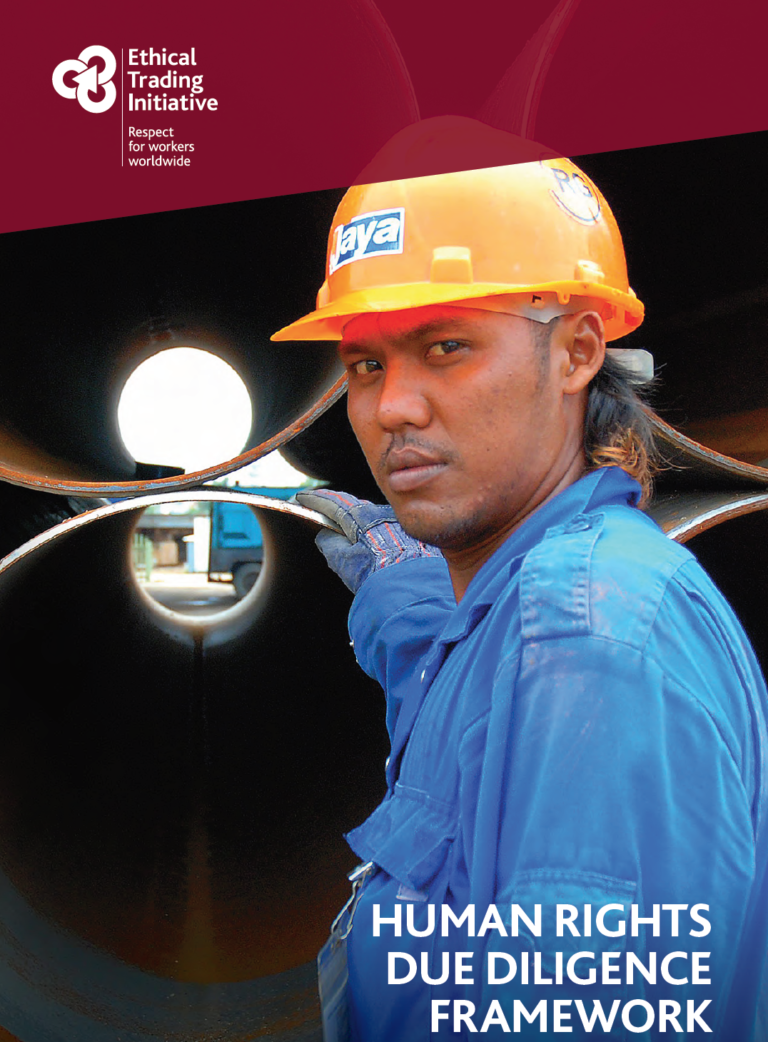This tool will help companies to meet their corporate responsibilities to respect human rights in the labour rights context, and report against these obligations. It sets out the critical elements of human rights due diligence and how they relate to one another. It will help companies understand what information is needed to make the right kinds of decisions, who to engage and why.
ETI’s tripartite approach brings companies, trade unions and NGOs together to shape the due diligence agenda and to ensure the most important risks for workers’ rights are identified and addressed effectively at each level of the supply chain.
Whilst the focus of this framework is on labour rights, it can be used alongside other guidance and tools that include environmental and community based human rights impacts. It is closely aligned with the ETI Base Code and Principles of Implementation, the UN Guiding Principles on Business and Human Rights, OECD Due Diligence guidance tools, and the SHIFT RAFI Framework, amongst others.
This framework should also help companies meet their legal obligations to report on the steps they are taking to tackle modern slavery, forced labour and human trafficking. Companies with operations in the UK, USA, Brazil and elsewhere, can be held criminally liable for committing modern slavery offences, and the penalties can be severe.

